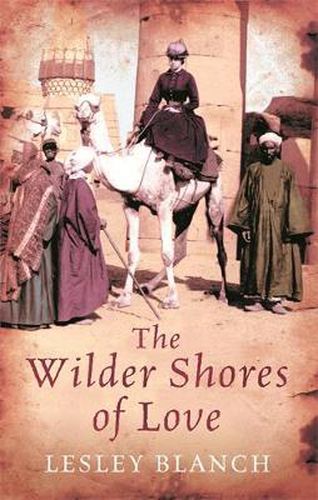Readings Newsletter
Become a Readings Member to make your shopping experience even easier.
Sign in or sign up for free!
You’re not far away from qualifying for FREE standard shipping within Australia
You’ve qualified for FREE standard shipping within Australia
The cart is loading…






‘There have been many women who have followed the beckoning Eastern star’ says Lesley Blanch. She writes about four such women in THE WILDER SHORES OF LOVE - Isabel Burton (who married the Arabist and explorer Richard), Jane Digby el-Mezrab (Lady Ellenborough, the society beauty who ended up living in the Syrian desert with a Bedouin chieftain), Aimee Dubucq de Rivery (a French convent girl captured by pirates and sent to the Sultan’s harem in Istanbul) and Isabelle Eberhardt (a Swiss linguist who felt most comfortable in boy’s clothes and lived among the Arabs in the Sahara).
They all escaped from the constraints of nineteenth century Europe and fled to the Middle East, where they found love, fulfillment and ‘glowing horizons of emotion and daring.’ And each of them, in their own way, used love as a means of individual expression, of liberation and fulfilment.
$9.00 standard shipping within Australia
FREE standard shipping within Australia for orders over $100.00
Express & International shipping calculated at checkout
‘There have been many women who have followed the beckoning Eastern star’ says Lesley Blanch. She writes about four such women in THE WILDER SHORES OF LOVE - Isabel Burton (who married the Arabist and explorer Richard), Jane Digby el-Mezrab (Lady Ellenborough, the society beauty who ended up living in the Syrian desert with a Bedouin chieftain), Aimee Dubucq de Rivery (a French convent girl captured by pirates and sent to the Sultan’s harem in Istanbul) and Isabelle Eberhardt (a Swiss linguist who felt most comfortable in boy’s clothes and lived among the Arabs in the Sahara).
They all escaped from the constraints of nineteenth century Europe and fled to the Middle East, where they found love, fulfillment and ‘glowing horizons of emotion and daring.’ And each of them, in their own way, used love as a means of individual expression, of liberation and fulfilment.